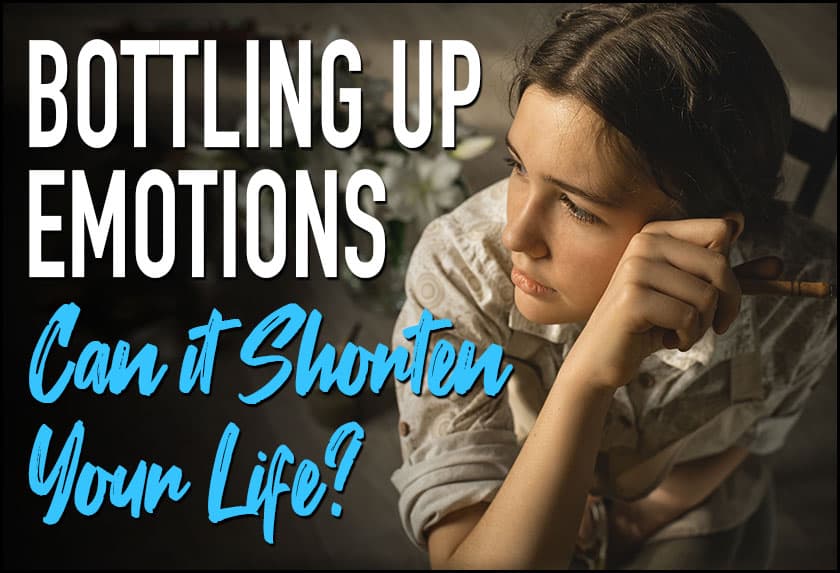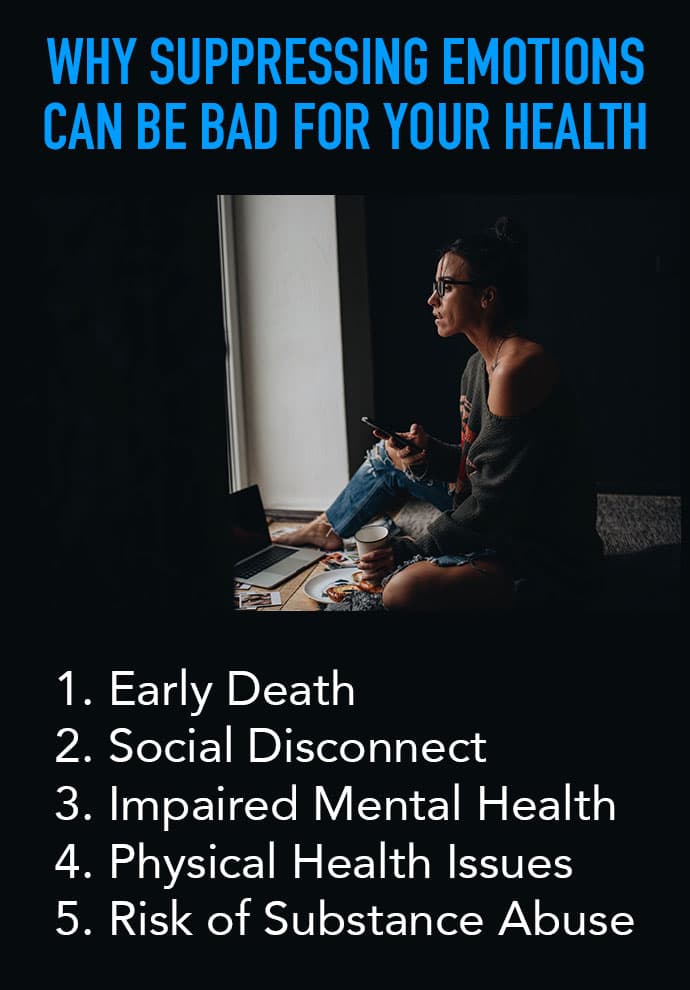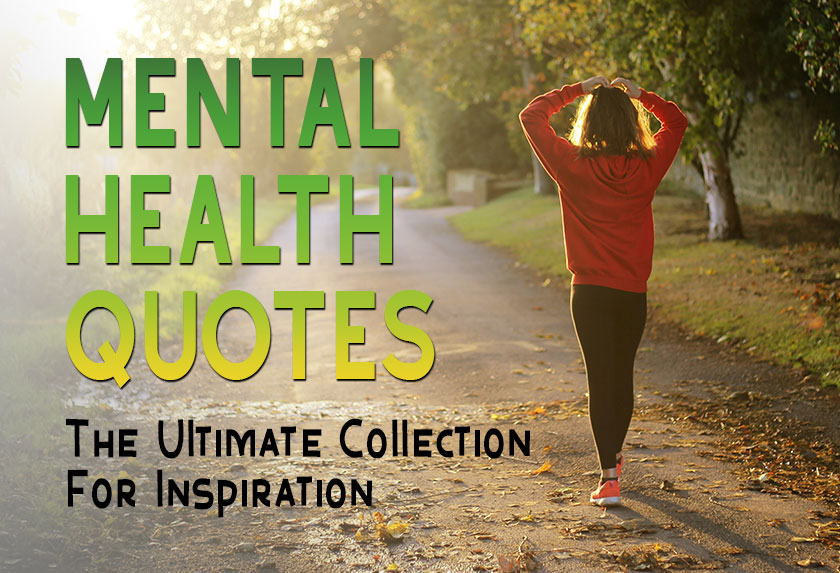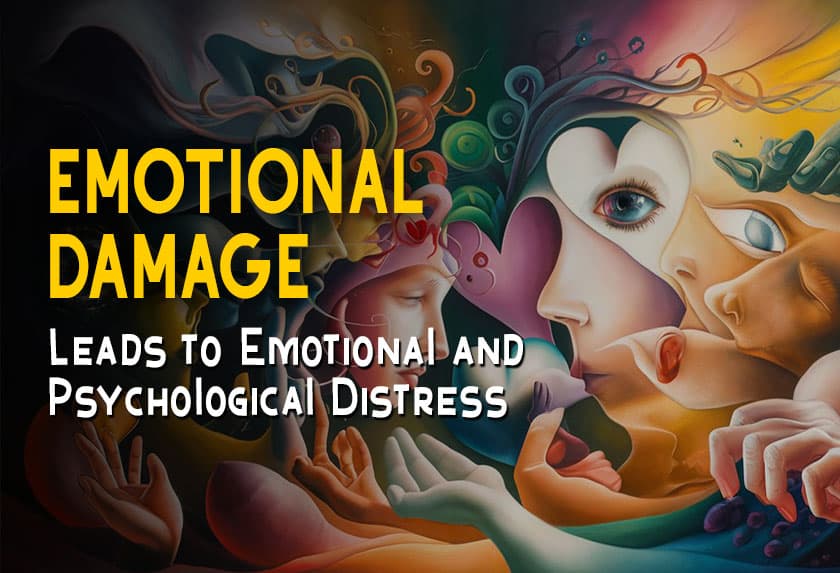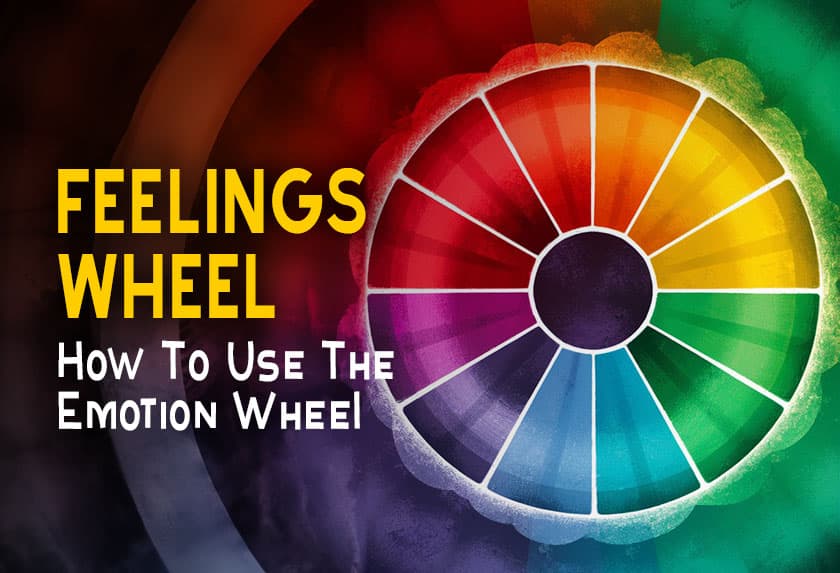How many times have you heard these statements? “Suck it up and move on,” “Stop being so sensitive,” “Hold it together,” “Emotions are a distraction, focus on the task at hand,” or “Emotions are a sign of weakness.” If you’ve been guilty of bottling up emotions, pay attention! Keeping your feelings suppressed and pushing down your emotions might seem like a quick fix to avoid confrontation, but at what cost? Well, early death may be one of the consequences.
Suppressing emotions and feelings could be taking a toll on your health in the long run—possibly knocking years off your life. According to a study published in the Journal of Psychosomatic Research, emotional suppression may increase the risk of premature death from cancer (70%), heart disease (47%), and all-cause mortality (35%).
The findings by researchers affiliated with the Harvard School of Public Health and the University of Rochester suggest that the consequences of suppressed feelings are more severe than most people assume.
So instead of suppressing emotions, try to find healthy ways to express them and live your life to the fullest! Read on for more on what causes emotional suppression, the negative health impacts, the how to cope with your feelings healthily.
“Suppressing feelings is never a good thing…if you feel angry, sad, happy, etc… FEEL IT! Go somewhere & scream, sit in silence, cry, and laugh till your stomach hurts! Just don’t let it linger…what you suppress you also subconsciously attract! Not attracting what you want out of life? What are you suppressing?”
― Sanjo Jendayi
Repression Vs Suppression
The terms “repression” and “suppression” may be used interchangeably as they both involve pushing down our emotions, but they don’t mean the same thing. Here are the differences.
- Define Repressed Emotions: Repression is a defense mechanism to minimize feelings of anxiety and guilt by blocking these unpleasant thoughts from your conscious mind. You subconsciously shove your emotions into a dark, dusty corner in your brain and deny them to the point where you may not even realize they’re there. It’s like sweeping something under the rug and forgetting it’s there until someone or something uncovers it. This can lead to a host of negative outcomes, like anxiety, depression, and even physical health problems as the negative feelings still linger in the back of your mind
- Suppress Meaning: Ever felt the urge to hide your true feelings from others? Maybe you’ve tried to push them deep down inside, hoping they’ll go away. This is an example of emotional suppression. Suppressing emotions and feelings is like putting a lid on a boiling pot (i.e., bottling up emotions). You’re aware of your feelings, but you’re actively (consciously) trying to keep them under control. It’s like saying to yourself, “I’m not going to let this bother me right now.” But like a boiling pot, the pressure will build and the suppressed feelings may rise and spill over more fiercely than before.
Why Suppressing Emotions and Feelings is Bad for Your Health
From happiness to sadness, anger to frustration, and everything in between—emotions are a natural part of being human. They are biological forces that should not be suppressed or ignored. And without a healthy outlet to express them, they tend to build up inside of us with the risk of boiling over.
Here’s how the act of burying one’s feelings—whether out of fear, shame, or social pressure—can have dire consequences for one’s health and longevity:
Early Death
Bottling up emotions may seem like the path of least resistance, but in reality, you may be digging yourself an early grave without even knowing it. As the earlier mentioned study shows, individuals who regularly suppress their emotions may be at higher risk for cardiovascular disease, cancer, and premature death.
The path to a long and healthy life requires that we honor the full spectrum of our emotions—allowing them to flow freely and authentically. By doing so, we can cultivate a life of emotional balance and resilience.
Social Disconnect
Suppressing emotions and feelings can lead to a sense of disconnection from oneself and others. It can create a barrier between you and others—causing misunderstandings, miscommunications, and even leading to a breakdown in relationships.
Think about it…when you hide your true feelings, you miss out on opportunities for authentic connection and vulnerability with the people in your lives. This can lead to feelings of isolation and loneliness—further exacerbating the negative emotions you tried suppressing in the first place.
Impaired Mental Health
When we fail to acknowledge and process our feelings, they don’t simply disappear. Instead, the suppressed feelings fester beneath the surface, causing a steady buildup of tension and anxiety. This can lead to chronic stress, cause psychological distress, and increase the risk of mental illness—including moodiness, irritability, anxiety disorders, and depression.
Bottling up emotions can also make people feel insecure, powerless, and out of control—damaging their self-esteem and confidence. Over time, this can lead to a decreased sense of happiness, fulfillment, and overall life satisfaction.
Physical Health Issues
Pushing your feelings aside may lead to physical stress on your body, including a higher risk of health complications like irritable bowel syndrome, ulcers, sleep disturbances, autoimmune disorders, gastrointestinal issues, and cardiovascular disease.
The pent-up stress from suppressing emotions and feelings may disrupt your body’s hormonal balance—increasing inflammation levels and negatively affecting your immune system. This literally makes you more susceptible to illnesses.
Risk of Substance Abuse and Addiction
At its core, suppressing emotions is a form of self-denial. It’s an attempt to stifle feelings deemed inappropriate or uncomfortable. The problem with this approach is that pent-up emotions can overwhelm the individual—leading to negative coping mechanisms and risk-taking behavior like substance abuse, overeating, and unhealthy lifestyles.
Emotional suppression can also lead to a sense of numbness, where the individual becomes desensitized to the world around them. This emotional disconnect can lead to a sense of detachment from reality, where risks are taken without any regard for personal safety or the safety of others.
Reasons for Suppressing Emotions and Feelings
A habit of suppressing emotions and feelings may stem from an interplay of internal and external factors.
Internal factors include a lack of emotional awareness, avoiding rejection or disapproval from others due to low self-esteem, and unresolved past trauma. Emotional suppression may also be a consequence of external factors—including societal expectations and cultural norms. For example, some cultures see venting out feelings of anger or sadness as signs of weakness and vulnerability. And in certain professional circles, individuals may suppress their emotions to appear competent or in control.
But whatever the reason, bottling up emotions only perpetuates an unhealthy cycle—leading to negative social, mental, and physical consequences.
How is Emotional Suppression Treated?
Suppressing feelings is like holding a ticking time bomb inside of you, waiting for it to explode. But there are ways to free yourself from this emotional prison.
Some ways to stop bottling up emotions include practicing self-awareness by acknowledging and accepting your feelings, learning to express your emotions constructively (e.g., through journaling or talking to someone you trust), making time for self-care, setting healthy boundaries, and practicing grounding exercises like mindfulness.
If repressed emotions and/or suppressed feelings have become a long-standing pattern, it can be difficult to overcome this habit alone. In such cases, you may need to talk to a mental health professional. They can provide you with the tools and techniques to cope with your emotions in a healthy and constructive manner.

